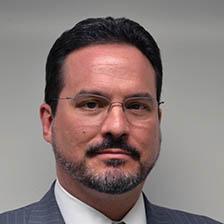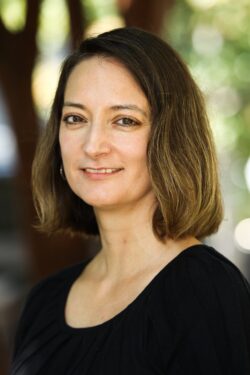The Alliance Working in Washington: Impacts of the U.S.-Japan Relationship – Virtual Program
December 1st, 2020 12:00PM -1:15PM
This is a virtual program, instructions on how to join this meeting will be sent the day before the event.
The critical U.S.-Japan relationship is buttressed by strong economic, political, and military ties. Prime Minister Shinzo Abe’s deft handling of his personal relationship with U.S. President Donald Trump insulated the bilateral relationship from some of the turmoil that other close U.S. allies have experienced. Abe’s resignation brings a new political leader to the fore in Japan – Yoshihide Suga. Additionally, following the November election, former Vice President Joe Biden is now set to be the next President of the United States. This could radically alter U.S. foreign, security, and economic policies. What does the U.S.-Japan relationship look like under the new prime minister and president – and how will these changes in the relationship affect Washington State’s strong economic and political ties with Japan? A panel of experts featuring American and Japanese perspectives will convene to discuss the role and nature of the U.S.-Japan security alliance and economic relationship, plus the benefits it affords to Americans and Japanese both nationally and locally within the Washington State region.
This event is part of Sasakawa USA’s The Alliance Working in America Series (TAWA) and will be held in partnership with the World Affairs Council of Seattle and the World Affairs Councils of America. Join the World Affairs Council of Seattle, the Sasakawa Peace Foundation USA, and the World Affairs Councils of America for a discussion on a national look at the U.S.-Japan alliance, as well as a local look at how the alliance is impacting Washington State.
About the Speakers
 Michael Jonathan Green is senior vice president for Asia and Japan Chair at the Center for Strategic and International Studies (CSIS) and director of Asian Studies at the Edmund A. Walsh School of Foreign Service at Georgetown University. He served on the staff of the National Security Council (NSC) from 2001 through 2005, first as director for Asian affairs with responsibility for Japan, Korea, Australia, and New Zealand, and then as special assistant to the president for national security affairs and senior director for Asia, with responsibility for East Asia and South Asia. Before joining the NSC staff, he was a senior fellow for East Asian security at the Council on Foreign Relations, director of the Edwin O. Reischauer Center and the Foreign Policy Institute and assistant professor at the School of Advanced International Studies (SAIS) at Johns Hopkins University, research staff member at the Institute for Defense Analyses, and senior adviser on Asia in the Office of the Secretary of Defense. He also worked in Japan on the staff of a member of the National Diet.
Michael Jonathan Green is senior vice president for Asia and Japan Chair at the Center for Strategic and International Studies (CSIS) and director of Asian Studies at the Edmund A. Walsh School of Foreign Service at Georgetown University. He served on the staff of the National Security Council (NSC) from 2001 through 2005, first as director for Asian affairs with responsibility for Japan, Korea, Australia, and New Zealand, and then as special assistant to the president for national security affairs and senior director for Asia, with responsibility for East Asia and South Asia. Before joining the NSC staff, he was a senior fellow for East Asian security at the Council on Foreign Relations, director of the Edwin O. Reischauer Center and the Foreign Policy Institute and assistant professor at the School of Advanced International Studies (SAIS) at Johns Hopkins University, research staff member at the Institute for Defense Analyses, and senior adviser on Asia in the Office of the Secretary of Defense. He also worked in Japan on the staff of a member of the National Diet.
Dr. Green is also a nonresident fellow at the Lowy Institute in Sydney, Australia, a distinguished scholar at the Asia Pacific Institute in Tokyo, and professor by special appointment at Sophia University in Tokyo. He is a member of the Council on Foreign Relations, the Aspen Strategy Group, the America Australia Leadership Dialogue, the advisory boards of Radio Free Asia and the Center for a New American Security, and the editorial boards of the Washington Quarterly and the Journal of Unification Studies in Korea. He also serves as a trustee at the Asia Foundation, senior adviser at the Asia Group, and associate of the U.S. Intelligence Community. Dr. Green has authored numerous books and articles on East Asian security, including most recently, By More Than Providence: Grand Strategy and American Power in the Asia Pacific Since 1783 (Columbia University Press, 2017). He received his master’s and doctoral degrees from SAIS and did additional graduate and postgraduate research at Tokyo University and the Massachusetts Institute of Technology. He received his bachelor’s degree in history from Kenyon College with highest honors. He holds a black belt in Iaido (sword) and has won international prizes on the great highland bagpipe.
 Mireya Solís is director of the Center for East Asia Policy Studies, Philip Knight Chair in Japan Studies, and a senior fellow in the Foreign Policy program at Brookings. Prior to her arrival at Brookings, Solís was a tenured associate professor at American University’s School of International Service.
Mireya Solís is director of the Center for East Asia Policy Studies, Philip Knight Chair in Japan Studies, and a senior fellow in the Foreign Policy program at Brookings. Prior to her arrival at Brookings, Solís was a tenured associate professor at American University’s School of International Service.
Solís is an expert on Japanese foreign economic policy, U.S.-Japan relations, international trade policy, and Asia-Pacific economic integration. She is the author of "Banking on Multinationals: Public Credit and the Export of Japanese Sunset Industries" (Stanford University Press, 2004) and co-editor of "Cross-Regional Trade Agreements: Understanding Permeated Regionalism in East Asia" (Springer, 2008) and "Competitive Regionalism: FTA Diffusion in the Pacific Rim" (Palgrave Macmillan, 2009). Her most recent book, “Dilemmas of a Trading Nation: Japan and the United States in the Evolving Asia-Pacific Order” (Brookings Press, 2017), offers a novel analysis of the complex tradeoffs Japan and the United States face in drafting trade policy that reconciles the goals of economic competitiveness, social legitimacy, and political viability. “Dilemmas of a Trading Nation” received the 2018 Masayoshi Ohira Memorial Award.
Solís has offered expert commentary to The New York Times, Financial Times, Washington Post, Los Angeles Times, Politico, The New Yorker, Nikkei, Kyodo News, Asahi Shimbun, Jiji Press, Japan Times, NHK World, Bloomberg, CNN, and BBC, among others. Solís earned a doctorate in government and a master's in East Asian studies from Harvard University, and a bachelor's in international relations from El Colegio de México.
 Saori N. Katada is Professor of Political Science and International Relations Department at University of Southern California. Her new book Japan’s New Regional Reality: Geoeconomic Strategy in the Asia-Pacific was published by Columbia University Press in July 2020. She is also a co-author of two recent books: The BRICS and Collective Financial Statecraft (Oxford University Press, 2017), and Taming Japan’s Deflation: The Debate over Unconventional Monetary Policy (Cornell University Press, 2018). She has her Ph.D. is from the University of North Carolina at Chapel Hill (Political Science), and her B.A. from Hitotsubashi University (Tokyo). Before joining USC, she served as a researcher at the World Bank in Washington D.C., and as International Program officer at the UNDP in Mexico City.
Saori N. Katada is Professor of Political Science and International Relations Department at University of Southern California. Her new book Japan’s New Regional Reality: Geoeconomic Strategy in the Asia-Pacific was published by Columbia University Press in July 2020. She is also a co-author of two recent books: The BRICS and Collective Financial Statecraft (Oxford University Press, 2017), and Taming Japan’s Deflation: The Debate over Unconventional Monetary Policy (Cornell University Press, 2018). She has her Ph.D. is from the University of North Carolina at Chapel Hill (Political Science), and her B.A. from Hitotsubashi University (Tokyo). Before joining USC, she served as a researcher at the World Bank in Washington D.C., and as International Program officer at the UNDP in Mexico City.
This program is in partnership with Sasakawa Peace Foundation USA
This program is in partnership with World Affairs Councils of America
The Boeing Company is an underwriting sponsor of all
World Affairs Council Community Programs